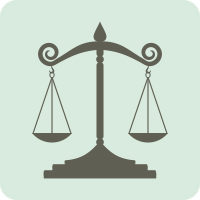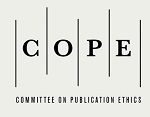Publication Ethics Policy

Ethical standards for publication exist to ensure reliable & high-quality scientific research publications, public trust in scientific findings, and that researchers receive credit for their work & ideas.
IJERT follows strict Code of Conduct and aims to adhere to its Best Practice Guidelines.
Plagiarism:
All articles published by IJERT are committed to publishing only original material, i.e., material that has neither been published elsewhere, nor is under review elsewhere. Manuscripts that are found to have been plagiarized from a manuscript by other authors, whether published or unpublished, will incur plagiarism penalty.
Duplicate Submission:
Manuscripts that are found to have been published elsewhere, or to be under review elsewhere, will incur duplicate submission sanctions. If authors have used their own previously published work, or work that is currently under review, as the basis for a submitted manuscript, they are required to cite the previous work and indicate how their submitted manuscript offers novel contributions beyond those of the previous work.
Improper Author Contribution or Attribution:
All listed authors must have made a significant scientific contribution to the research in the manuscript and approved all its claims. It is important to list everyone who made a significant scientific contribution, including students and laboratory technicians.
Redundant Publications:
Redundant publications involve the inappropriate division of study outcomes into several articles.
Citation Manipulation:
Submitted manuscripts that are found to include citations whose primary purpose is to increase the number of citations to a given author’s work, or to articles published in a particular journal, will incur citation manipulation penalty.
Data Fabrication & Falsification:
Submitted manuscripts that are found to have either fabricated or falsified experimental results, including the manipulation of images, will incur data fabrication and falsification penalty.
Penalty:
In the event that there are documented violations of any of the above mentioned policies of IJERT, regardless of whether or not the violations occurred in a journal published by ESRSA, the following rules will be applied:
- Immediate rejection of the infringing manuscript.
- Immediate rejection of every other manuscript submitted to any journal published by IJERT by any of the authors of the infringing manuscript.
- Prohibition against all of the authors for any new submissions to IJERT, either individually or in combination with other authors of the infringing manuscript, as well as in combination with any other authors. This prohibition will be imposed for a minimum of 2 years.
- Prohibition against all of the authors from serving on the Editorial Board of IJERT.
In cases where the violations of the above policies are found to be particularly offensive/flagrant, the publisher reserves the right to impose additional restrictions beyond those described above.
Reviewers
Reviewers must:
- maintain the confidentiality of the review process
- immediately alert their journal editor of any real or potential competing interest that could affect the impartiality of their reviewing and decline to review where appropriate
- conduct themselves fairly and impartially
We are aware, of course, that academics will come from a particular school of thought and/or may have strong ties to a particular interest. All we ask is that reviewers strive to act fairly. If in doubt about whether a conflict exists, a reviewer should be transparent and seek the views of the journal editor.
Editors
Editors should:
- maintain and promote consistent ethical policies for their journals
- oversee and act to enforce those policies as needed in a fair and consistent manner
- ensure the confidentiality of the review process
- exercise the highest standards of personal integrity in their work as editor of the journal, recognising and planning for instances where they could have a competing interest or the appearance of a competing interest
- work with authors, reviewers, and Editorial Board members as necessary to ensure they are sufficiently advised regarding their journals’ ethics and publishing policies and that the journal’s stewardship on ethical matters is fair, unbiased, and timely
Everyone including Editorial Boards
- We should promote fairness and equality and oppose discrimination
- We should promote the transparency of and respect for the academic record
- We should respect the confidentiality of others
- We should be transparent about real or apparent competing interests
Additional Resources
- Committee on Publication Ethics (COPE) — http://publicationethics.org/
- American Educational Research Association (AERA): http://www.aera.net/Portals/38/docs/About_AERA/CodeOfEthics(1).pdf
- Council of Science Editors (CSE) — http://www.councilscienceeditors.org/i4a/pages/index.cfm?pageid=3331




